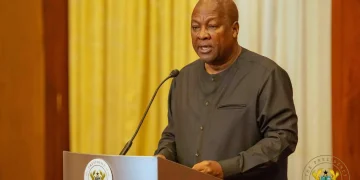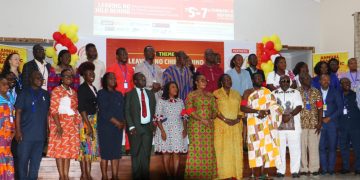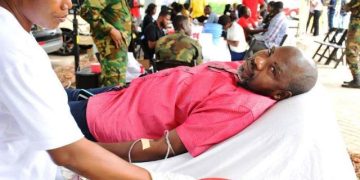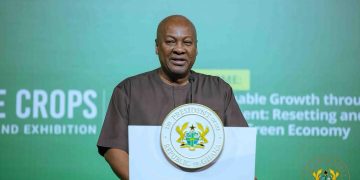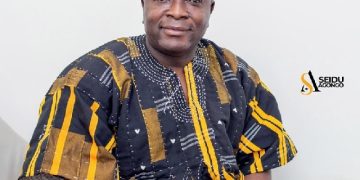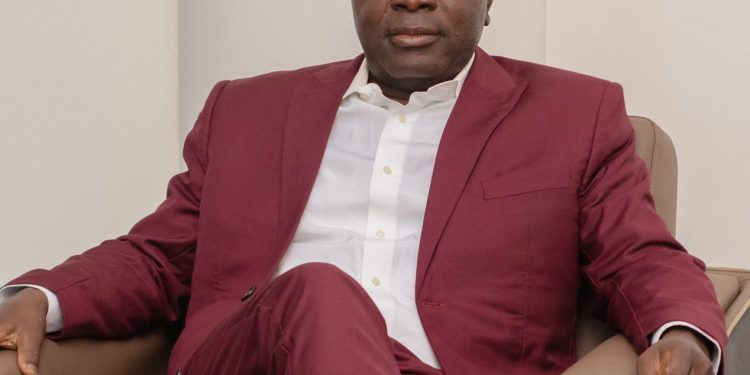President John Dramani Mahama has flooded his legacy government with youthful appointees in what some say is a political gamble.
For me, it is neither a gamble nor a political strategy. It is a national necessity that the appointees must now treasure and use it to create opportunities for their teeming colleagues.
While that will help address the country’s most pressing problems, it will also help to justify why today, not the future is for the youth.
With Ghana’s population overwhelmingly youthful, empowering the next generation is essential.
That is why the appointments of Dr Frank Amoakohene as Ashanti Regional Minister; Felix Kwakye-Ofosu and Shamima Muslim as Government Spokespersons, Stanislav Dogbe as Deputy Chief of Staff, Beatrice Annangfio as Presidential Staffer, Smauel Gyamfi as GOLDBOD CEO, Godwin Kudzo Tameklo as NPA CEO, Afetsi Awoonor as BOST CEO and the ‘green army commander’ Malik Basintale as chief executive of the Youth Employment Authority are magical and spot on.
Dimming dreams
Ghana’s median or average age is just 21.3 years, with over 57 per cent of the population under 25.
Each year, more than 110,000 young people graduate from universities and other tertiary schools, according to the Ghana Tertiary Education Commission (GTEC). Yet only 10 per cent are absorbed into the public sector, leaving the rest to navigate a job market that is not expanding fast enough to meet their aspirations.
Data from the Ghana Statistical Service show that youth unemployment rate stands at 22.5% for those aged 15–35, with long-term unemployment affecting nearly 355,000 young people.
These are more than statistics. They are the number of lives and dreams that stand at risk of being dimmed alongside the hopes of their families and friends. This must be a call to action.
Mahama’s strategic gamble
Having been entrusted leadership roles while still a youth, President Mahama has consistently championed youth inclusion and equity.
His appointment of Ghana’s first female Vice President, Prof. Jane Naana Opoku-Agyemang who declared she was “opening the door for girls in Africa,” is a powerful symbol of what is possible when leadership is inclusive.
The Ashanti Regional Minister, a young and dynamic leader, among the many young appointees of the President exemplify this new wave of governance.
But with opportunity comes scrutiny. Critics, including former New Patriotic Party Member of Parliament, Mr K.T. Hammond, have questioned the wisdom of entrusting national leadership to the youth.
Mr Hammond once described youthful ambition as “empty-headed” and warned that “you cannot be the only ones in charge of the country’s governance”.
This is where the youth must rise, not to revolt against their critics with actions or words but with positive results and deeds.
Keeping the door open
Every young appointee carries not just personal ambition but the hopes of millions of young Ghanaians.
If they succeed, they justify the confidence placed in them. If they falter, they reinforce the narrative that youth equals incompetence and hand the old guard the ammunition to roll back progress.
That is why President Mahama’s youth appointees and indeed, every young leader in Ghana must work hard, maintain integrity, and tailor policies to address the real challenges facing their peers, which are unemployment, underemployment, digital exclusion, and lack of access to capital.
Across Ghana, youth-led initiatives driven by private individuals are reshaping governance, development, business, and job creation through digital innovation, civic activism, environmental sustainability, and inclusive entrepreneurship.
Similar initiatives are happening in Rwanda, where most government positions are occupied by young people, Nigeria and Ethiopia among other countries.
But it must not end there. Youthful appointees must be dynamic and responsive.
They must champion reforms in education, entrepreneurship, and digital skills.
With over 380,000 new job seekers entering Ghana’s market annually, policies must shift from theory to action.
Young leaders, especially those appointed by President Mahama, must champion bold reforms that squarely tackles the unemployment, digital exclusion, and limited access to capital challenges eroding youthful dreams.
These include expanding technical and vocational education with market-relevant skills, investing in digital infrastructure and innovation hubs, creating youth-targeted financing schemes for startups and small-scale enterprises, and reforming public sector hiring to be more inclusive and merit-based.
Bridge between generations
While we push the youth agenda, seasoned politicians and leaders must not stand aside.
They must mentor, guide, and support young appointees.
Initiatives like the Programme for Young Politicians in Africa (PYPA) and the African Leadership Centre Fellowships are already doing this across the continent.
The key thing is, mentorship is not about control, it is about continuity. It is about passing on wisdom, not power.
Mentorship is about ensuring that the next generation leads with clarity, courage, and competence.
And at the end, we must all recognize that leadership is not about age. It is about vision, discipline, and service.
The youth must not only walk through the doors opened by President Mahama, but they must also keep them open for others.
That is how we build a future worthy of our dreams. Let us rise. Let’s lead. Let’s justify the confidence to keep the door open.
Source : Alhaji Seidu Agongo




